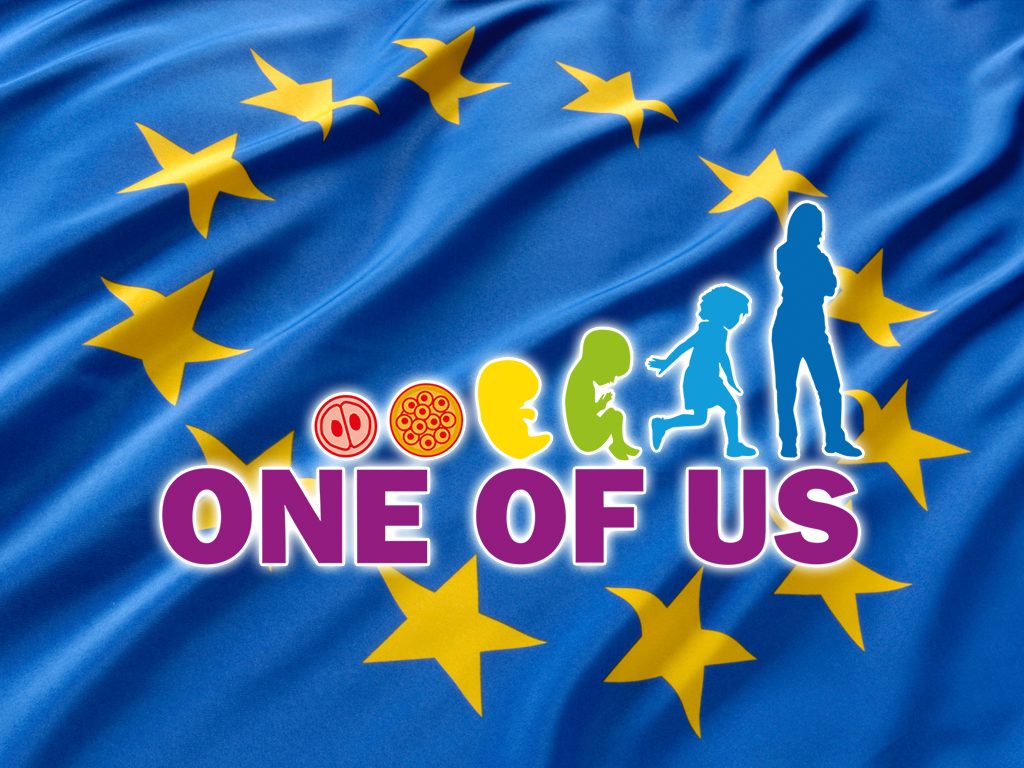Blog Post
Intellectuals and pro-life organizations meet in Paris after forming federation to protect life and family in Europe
By Jonathon Van Maren
The organization One of Us, a federation of forty member organizations from 19 nations within the European Union, gathered in Paris last month to launch their Cultural Platform under the high patronage of Professor Rémi Brague of the Institut de France. The conference, which was held on February 23 in Paris at the Luxembourg Palace, marked the beginning of an intellectual revolt against the Sexual Revolution that has been sweeping the West for a half-century, featuring European philosophers, historians, lawyers, and doctors uniting in a single cause: “the renewal of a Europe…faithful to human dignity.”
According to a press release, the French philosopher Remì Brague, author of the “Manifesto for a Europe Faithful to Human Dignity,” noted that the enormous importance of the Manifesto and the new Cultural Platform. “There is a kind of terror everywhere,” he noted. “An intellectual force which is in favour of certain representations in the world. This terror is not bloody, but sweet. However, it is discreet, and thus more effective.” The consequences these terrors—like abortion and euthanasia—have had for society have been devastating.
“Today what we are committed to is the life, the reason, the freedom, the equal dignity of every human from his conception to his or her natural death,” Brague stated. “We live in a time [when] we must reaffirm these values. We have to free the [minds] within Europe, but first we need to [re]define freedom. A freedom that in the end serves something or someone is not freedom. A freedom that would be in service as a servant would be contradictory and thus would destroy itself.” The Cultural Platform of One of Us hopes to respond to the ongoing destruction of Europe, summed up so succinctly in the title of German sociologist Gabriele Kuby’s latest work: The Global Sexual Revolution: The Destruction of Freedom in the Name of Freedom.
The emphasis is on Europe, Brague went on, “because it is on this continent that terror can be observed, and we have the opportunity to turn the threat to our freedom into an opportunity to intervene. As members of the human race, we are obliged to protect the rights of those who cannot stand up for their own rights.” For Brague the human embryo is an example of such, in which “we must aim at a situation where distress no longer forcing women to resort to this extreme means of abortion.” It is for this reason that so many pro-life organizations are a part of the One of Us federation (I was invited to cover the Dutch March for Life on behalf of several member organizations in 2017.)
The conference, which was attended by 150 intellectuals and representatives of various pro-life organizations, also featured the presentation of the third European Award for Life, which was presented to Carlo Casini of the Italian MpV and honorary president of One of Us. She decided to dedicate the award to the “mothers of Europe,” stating that the award expresses “the normality of motherhood” because “the vast majority of women recognize the embryo as One of Us. Also, it recognizes pregnancy as an intimate and uninterrupted embrace that lasts for months…this award sends a strong message in these times of declining birth rates on the eve of Women’s Day.”
Assuntina Morresi, professor of physical chemistry at the University of Perugia and Member of the National Committee for the Bioethics, one of the 13 intellectuals of the Italian faction of the new European Cultural Platform spoke on the theme: “The future of the family, the future of culture in Europe.” Together with Katalin Novák, Secretary of State for the Family, Youth and International Relations Hungary, who gave a political view, Morresi faced the heart of the problem. The professor explained how the anthropological revolution “started with the birth of the first child, conceived with artificial insemination, Louise Brown (41) years ago.” According to her, the foundations of a human were transformed using science: “With Louise Brown science has stated that there is more for a child than just one mother or one father. Nowadays a child can have even two mothers: one genetic and one gestational mother.”
She noted that today, people are even confused as to how motherhood should be defined. “When motherhood is determined by a contract, family becomes uncertain, unstable, because a contract can be cancelled. Becoming parent by contract as such has consequences, and I name three: 1. The existence of multiple family models that are depending on this type of contract; 2. The understanding that parenting does not necessarily include two parents but also more. 3. The fact that a contract can be cancelled or terminated…we are faced by an anthropological revolution, because maternity/paternity is now defined by contract, and not by biology.” She emphasized how this endangers the future of Europe: “Being a mother or father simply by contract is not forever, contracts can be revoked. So there is no future: The future of Europe is in the #familia.”
As Europe faces dark days, pro-life and pro-family forces are marshalling their efforts to respond to the impact and the victims of the Sexual Revolution. One of Us is a lighthouse in a storm, warning us of the jagged, ugly rocks that threaten the very future of the continent.
_______________________________________________
For anyone interested, my book on The Culture War, which analyzes the journey our culture has taken from the way it was to the way it is and examines the Sexual Revolution, hook-up culture, the rise of the porn plague, abortion, commodity culture, euthanasia, and the gay rights movement, is available for sale here.








